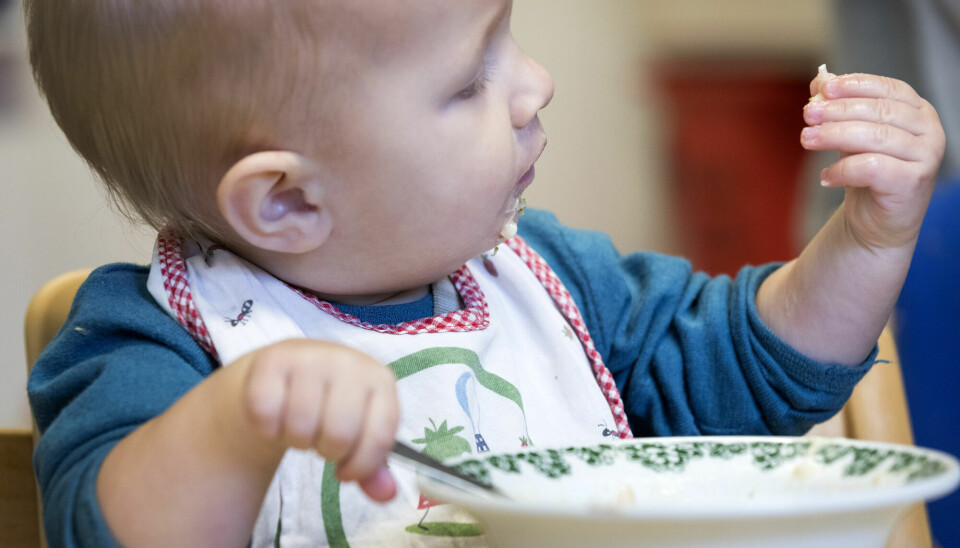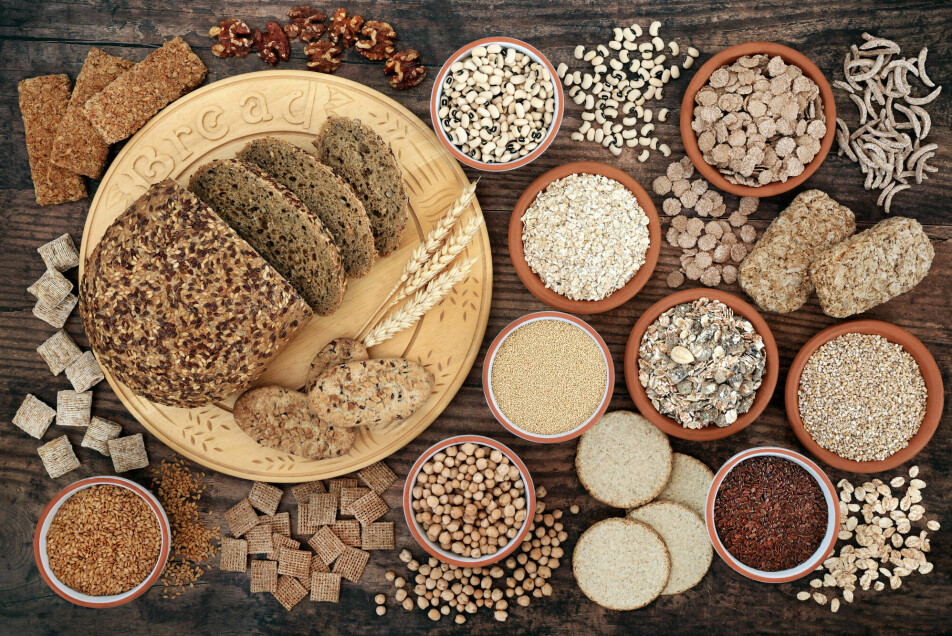
Children who are vegan may have as healthy a diet as kids who eat meat
A new report on vegetarian and vegan diets affirms that these diets are healthy. But children who eat vegan diets must be given important supplements.
Vegan diets are safe for children as long as parents follow certain recommendations, according to the Norwegian Nutrition Council.
“How healthy a diet is doesn’t depend on whether you have a vegetarian, vegan or mixed diet,” said Lars Fadnes during the launch of the new report on 27 September 2021.
Individuals who eat meat may also have an unhealthy diet, said Fadnes, who headed the group that wrote the report.
In all cases, children should eat a varied diet so they get the nutrition, vitamins and minerals their body needs.
Parents who feed their children a vegetarian or vegan diet should still be aware of a number of things, he said.
Should get supplements
Plants have insufficient amounts of some important substances. This is especially true for vitamin B12 and the mineral iodine.
Iodine is found naturally in seaweed and kelp, but the council warns against consuming too much seaweed, because excessive doses of iodine can be toxic.
Instead, the recommendation is to give vegan and vegetarian children a multivitamin and mineral supplement. Of particular importance is that the supplement contain vitamin D, vitamin B12 and iodine.
This recommendation also applies to children who eat some eggs, milk, cheese or yoghurt, but otherwise eat mostly a plant-based diet.
Small stomachs fill quickly
Another thing that parents who don’t feed their children meat or fish need to be aware of is to make sure their children get enough nutrition.
“Fruits and vegetables are not very energy-dense and can consequently fill small stomachs quickly,” Fadnes said.
So even though fruits and vegetables are very healthy, children shouldn’t fill up on them.
But other options from the plant kingdom are both filling and nutritious.
Beans, lentils, peas and other legumes are both nutritious and high in protein. The same applies to grain products.
Nuts and seeds are also healthy and contain a lot of nutrients.

Vegan cod liver oil and plant drinks with calcium
Plant-based foods are also low in the omega-3 fatty acid DHA. Children who eat a traditional diet can get this fatty acid from oily fish or cod liver oil.
But there is a vegan alternative, algae oil with DHA.
The Norwegian National Council for Nutrition recommends that children who don’t have fish in their diet be given this alternative.
They also recommend that parents choose plant drinks with added calcium.
Another thing for vegan parents to consider is that plant drinks contain less protein than cow's milk.
Soy drinks have the highest protein content, so the council recommends this as a first choice for children older than one year.
Will evaluate whether national dietary guidelines should be changed
But is it right for a national body to recommend a diet where supplements are essential to avoid illness? A viewer asked this question during the digital launch.
Linda Granlund, division director for public health and prevention at the Norwegian Directorate of Health, said that the directorate will look at this issue.
“We’ve now received this report from the Norwegian National Council for Nutrition and will assess to what extent and whether this should affect our dietary advice. We will look at this during the current reassessment of the Nordic Nutrition Recommendations,” she said.
May be harmful
Several experts have spoken out negatively about plant-based diets in the past.
"A vegan diet can be harmful to pregnant women and young children," five nutritionists and two paediatricians wrote in an opinion piece that ran in the national newspaper Aftenposten in 2019.
The authors wrote that an important nutritional principle is that a person’s diet should be varied enough to make supplements unnecessary.
Many others need supplements
Gry Hay is on the National Council for Nutrition and is a senior adviser in the Norwegian Directorate of Health.
She says taking a vitamin and mineral supplement is both safe and a good insurance policy for people who don’t eat meat and fish.
Taking supplements is also not unique to vegans and vegetarians, she points out.
“There are probably many people who should take supplements of some vitamins and minerals. Most people, for example, need to take a vitamin D supplement. Many young women, and pregnant and breastfeeding women need folate and iodine supplements,” Hay said.
Advice for pregnant vegans
Pregnant women who are vegans or vegetarians themselves should be extra careful to get the vitamins and minerals their growing foetus needs to develop.
“A lack of nutrients, such as certain vitamins and minerals, can have serious consequences in this phase,” the National Council for Nutrition wrote in their expert opinion report.
Like vegan children, pregnant women who eat a vegan diet should take vitamin D, vitamin B12 and iodine supplements.
They should also take algae oil with DHA and get enough calcium from, for example, plant drinks, green vegetables or almonds.
Infant formula an exception
The same goes for breastfeeding. Even if a mother takes supplements, the child should usually also be given supplements.
The exception is infants who are fed infant formula.
Vegan breast milk substitutes contain the vitamins and minerals babies need, so they don’t need additional supplements.
Translated by Nancy Bazilchuk
Read the Norwegian version of this article on forskning.no
Reference:
Report of the Norwegian National Council for Nutrition on behalf of the Norwegian Directorate of Health: Vegetar- og vegankost - ekspertuttalelse fra Nasjonalt råd for ernæring, (Vegetarian and vegan diet - expert opinion from the National Council for Nutrition), September 2021.
































